
A Puzzle Awaits Colombia’s Next President – and Washington
Soaring coca cultivation and a troubled peace deal will demand attention, but most voters are worried about other priorities.

Soaring coca cultivation and a troubled peace deal will demand attention, but most voters are worried about other priorities.
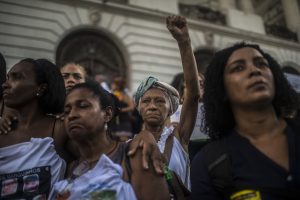
The response to a politician’s murder may be a turning point in finding a way out of Rio’s crisis.
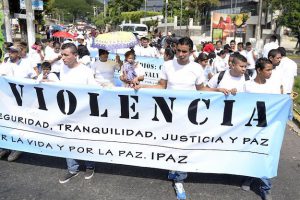
Twenty-six years since the end of civil war, El Salvador – and its neighbors – are making fragile progress on violence.
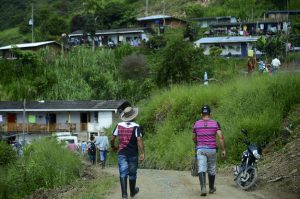
Leer en español At the heart of Colombia’s peace agreement with the FARC is an earnest effort to improve life in its long neglected countryside. A series of national programs for education, health, electrification, housing and credit for the agricultural sector, built into the agreement, are designed to help close a woeful development gap between … Read more
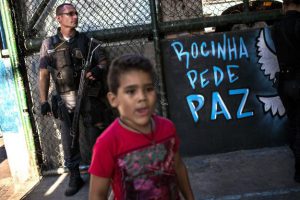
Ler em português RIO DE JANEIRO – The most vital Twitter feed here these days is called Onde Tem Tiroteio, or “Where There Is a Shootout.” One recent afternoon, in a span of just a few hours, it sent these alerts to its 36,000 followers: “Shots heard in Botafogo, near Santa Marta and Cobal. Attention … Read more
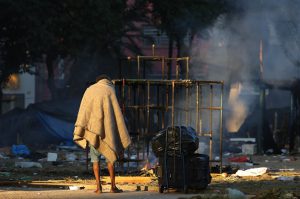
When São Paulo Mayor João Doria set out to fulfil a campaign promise and rid the city of its cracolândia (crackland), an area that was home to a group of homeless people, some of whom used drugs, he did so with an overwhelming and telegenic show of force: 500 police officers armed with guns, tear gas … Read more

This article is adapted from AQ’s 2017 special report on the U.S.-Mexico relationship. To receive AQ at home, subscribe here. That Mexico’s drug cartels get their firepower from the United States is no longer much of a mystery. Even President Donald Trump has acknowledged that the U.S. should do more to curb the flow of arms across its southern border. But Trump’s plan … Read more
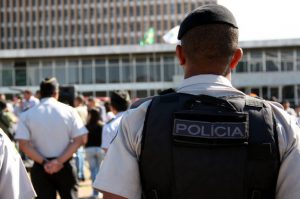
Leer en español | Ler em português In Bogotá, just 1.2 percent of street addresses account for 99 percent of homicides. In Medellín, 40 percent of all crimes occur in just 10 hours of the 168-hour week. Perhaps more than any other part of the world, homicide in Latin America is concentrated by time and place … Read more
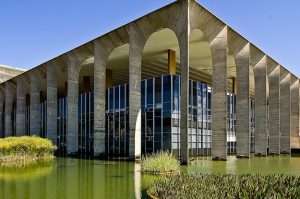
José Serra’s tenure as Brazil’s Minister of Health from 1998 to 2002 was highlighted by a successful effort to overcome the resistance of U.S. pharmaceutical giants and provide Brazilians with universal access to generic AIDS drugs, a move that saved hundreds of thousands of lives. Serra was unable to make such a significant mark in … Read more
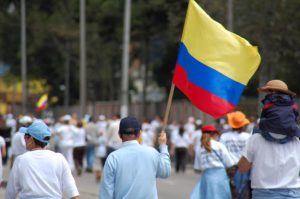
Implementing peace was always going to be harder than negotiating it. But in the three months since Colombia’s Congress endorsed a deal to end more than 50 years of conflict with the Revolutionary Armed Forces of Colombia (FARC), the country’s fragile peace process has already been put to a chilling test. Since Dec. 1 of … Read more
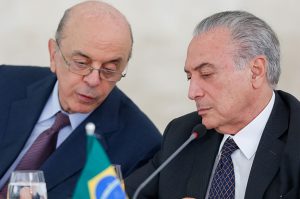
Last week, Fórum Brasileiro de Segurança Pública, a well-respected NGO based in São Paulo, published a series of grim statistics. In 2015, a staggering 58,383 people were assassinated in Brazil. The number of murders in Brazil increased over 250 percent in the last three decades, jumping from 13,910 in 1980 to above 50,000 in 2012. … Read more
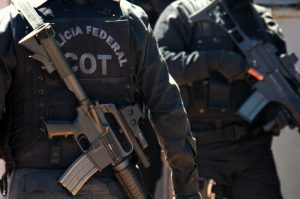
Many deaths are unavoidable. Natural disasters and incurable illnesses can claim lives suddenly, without warning. But there is one untimely death that can be avoided – homicide. It is time for Latin America and the Caribbean to set a bold goal to bring down the murder rate. The region is one of the world’s deadliest. It is home … Read more
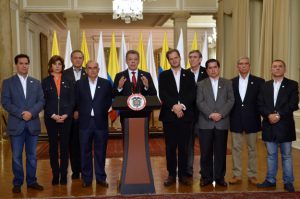
It was a shock result. But a reexamination of why Colombians voted “no” to a peace deal with the Revolutionary Armed Forces of Colombia (FARC) by a margin of just 54,000 votes on Sunday sheds some light on why almost all pundits got it wrong – and what might happen next. Here are six reasons … Read more
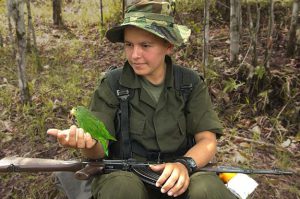
They may call themselves the “generation of peace,” but young Colombians are actually among those least likely to support their government’s recent peace agreement with FARC rebels, which will be put to a plebiscite vote on October 2. Part of the reason, observers say, is that many young Colombians have not experienced the conflict as … Read more
Brazil may be the world’s seventh-largest economy and highly visible on a global scale, but it is, in many ways, remarkably isolated from the rest of the world and from global threats like terrorism. At least most thought it was. The arrests in recent days of 12 Brazilians suspected of plotting to carry out attacks during the … Read more